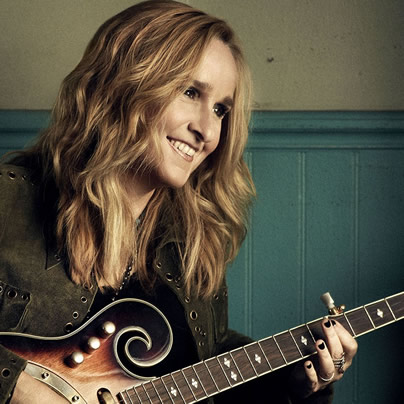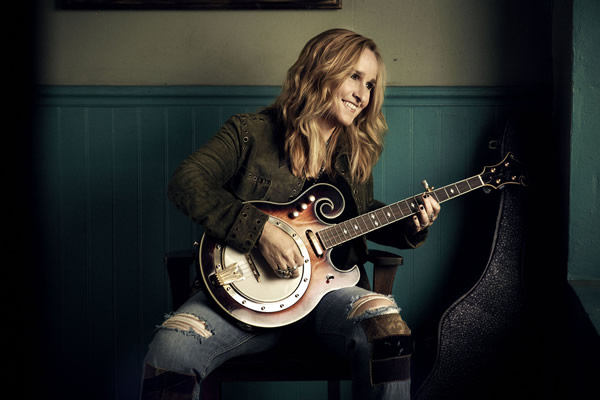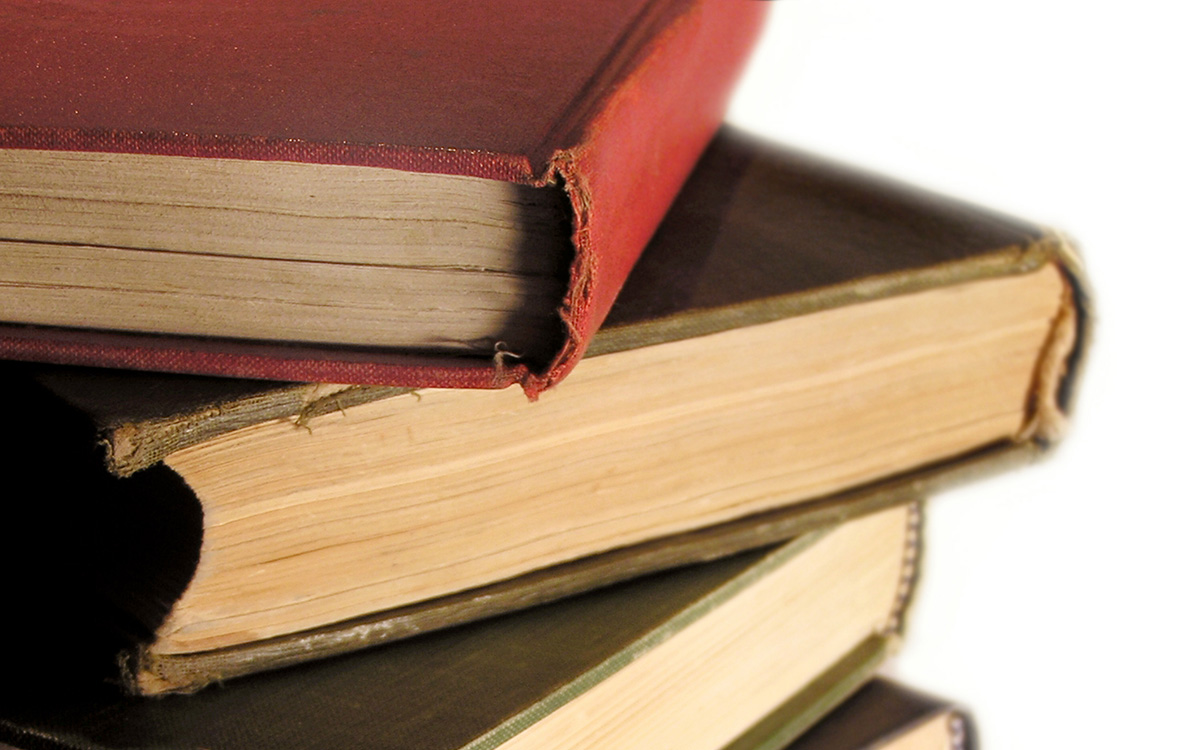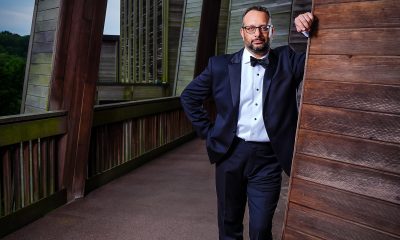Arts & Entertainment
Rippin’ & tearin’ & strippin’
Melissa Etheridge on Wolf Trap and why drastic health steps should be weighed carefully


Melissa Etheridge (Photo by James Minchin III)
Melissa Etheridge
With guest Eric Hutchinson
Tuesday
8 p.m.
Wolf Trap
Filene Center
1551 Trap Road
Vienna, VA
$35 (lawn)-$65
wolftrap.org
When we talked to Melissa Etheridge last year the conversation turned — as one might expect in an election year — to politics. So this time we focused on music. The lesbian rocker plays Wolf Trap Tuesday night. Her comments have been slightly edited for length.
WASHINGTON BLADE: Last time you were here you played the Strathmore, which is kind of stately, whereas Wolf Trap is outside and more earthy. Does the venue affect the kind of show you play?
MELISSA ETHERIDGE: Yes, totally. One of the things I do before I even write out a set list is I go stand on stage and look out and really get a feel for what the venue is like. Is it indoors, outdoors, is the first row up close, will people be able to stand, are they soft seats, hard seats? I’ve been touring for 25 years so I’m very conscious of what kind of show can be produced at each place and it does make a difference in what songs I play. This will definitely be different from the Strathmore show. I love playing Wolf Trap and I don’t think I’ve ever sweated as much on stage as when I’ve played Wolf Trap. It was just so humid last time I was there, I was really soaked even before the show. But yeah, it’s gonna be much more rock and roll out there.
BLADE: How do you manage to do those big rock money notes year after year? Rock singing, of course, often doesn’t use proper vocal technique that they teach you in classical singing and some singers get vocal cord nodules while others, like Tina Turner perhaps or many gospel singers, seem to be able to growl and howl for decades on end with no problem. Have you ever strained your voice letting it rip so to speak?
ETHERIDGE: I learned a long time ago playing in bars how to make that growly rock and roll sound but not harm the vocal cords. It’s not really screaming, it’s like a stage scream. That and having a good understanding of how not to tax the voice too much in doing that style of singing, also helps. I usually don’t sing more than three night in a row. I can do four, but it will start to wear down after awhile and the shape of my voice is definitely related to everything. If I’m tired, if I haven’t eaten right, if I’m stressed, all those things affect it. But as long as I can eat right and sleep well, I can be on the road and do the rock and roll stuff out there every night.
BLADE: How have you found the right balance throughout your career of knowing when to play up the all-out rock stuff versus having enough of a commercial, pop/AC vibe on your various projects to get some radio and mainstream exposure? Have you given much thought to those sorts of things as you’ve been writing and recording various records?
ETHERIDGE: Yeah, it’s been a big part of understanding radio and the music business in general and then just when you kind of have a handle on it, of course it changes much like it did in the mid-‘90s when I was really at the pinnacle of it. As it should — young kids grow up and they have their own stuff and I get that. I stopped, I guess around the turn of the century, trying to make my music for radio because I think that would just have been selling myself out and I realized I had a strong live audience that was not going away and would still come see me play, so I really dedicated myself to making the music that I love and not trying to be so much pop. Which is fine — I mean, I love a good pop song like everybody else does, but I don’t limit myself to that anymore. The most important thing in my mind when I’m writing and recording is how is this going to translate to the live stage. That’s more the guideline.
BLADE: And yet many veteran acts who have that loyal fan base have great numbers the first week out with a new album and like you said, do fine filling decent-size venues, yet without any radio traction, the albums can come and go so quickly it seems. Has there been any frustration with that at various times? Any sense of a diminishing return for all the hard work?
ETHERIDGE: Well yeah, of course you always hope there’s maybe something there radio can hold on to a little and you would always like to make your record company a little money, that’s always nice. Yet I really have learned to let it go because I think the music does sort of manage to find its own way. I just stumbled on some online music site where these two rock critics were saying my last album “4th Street Falling,” that if it had been released by some up-and-coming singer, it would have really represented kind of the future of rock and roll or something so yes, there is sometimes an advantage to being not as established but I wouldn’t trade where I am at all to be up and coming. I’m very happy with where I am overall and I feel I have a great deal of industry respect and I’m fine with that.
BLADE: You’ve been on Island your whole career, which is almost unheard of in this day and age. I’m sure the whole staff has changed since you started …
ETHERIDGE: Not a single person is still there from then.
BLADE: How have you navigated all the changeover?
ETHERIDGE: It’s funny, there was a joke a few years ago there that everytime I had a new album out, “Oh, watch out, Melissa’s got a new one, there’s going to be a complete regime change.” Different times my options have been up we’ve looked around and, you know, Island and Def Jam and Universal — it’s one of the biggest labels there is. I always felt I had good relationships there so why not? The whole business has changed so much, it’s nice to stay someplace if you can.
BLADE: Last time you played here, the album was just out. Do you feel freer to sing more of it live now that it’s been out awhile and people have had time to let it sink in or do you skew more hit-heavy for the summer shows?
ETHERIDGE: Last fall I did kind of the “4th Street Falling” tour and I did a lot of new stuff but at that stage, I’m still listening to the new stuff, experimenting a bit and finding out which songs seem to pop more live. So I kind of play the new stuff and see which cuts were really fun for the audience and they tend to stay in the show. But yeah, it’s a summer show — we’re going to be doing all the hits too. We’ll be singing “Come To My Window” at the top of our lungs.
BLADE: You had so many great TV duet shows over the years in terms of collaborations with other artists — Joan Osborne, Sophie B. Hawkins, Jewel, Dolly Parton. Any of those especially stand out in your mind?
ETHERIDGE: Well singing with Bruce Springsteen was a dream come true. It was like, “Oh, please let time stop.” That one and singing with Dolly was just one of the greatest things that ever happened to me. I felt like our entertainment ethics were the same. She’s such a great entertainer and we kind of threw things back and forth. It felt like a good game of one on one.
BLADE: One that I really remember was when you sang “You Can Sleep While I Drive” as a duet with Amy Grant. Here she was this gospel singer singing a sweet duet with you, which sort of gave it a lesbian undercurrent. It seemed kind of shocking at the time. Do you remember how that came about or if there was any hesitation in her camp to do it?
ETHERIDGE: Trisha Yearwood had covered that song sometime in the ‘90s, so it had kind of been in the country world, then when Amy came in and we were talking about songs we could do, she said, “Well, I want to sing ‘You Can Sleep While I Drive.’” I’ve sang that with more people than any other song. It just kind of lends itself to that harmony duet feeling. I’ve known her for a long time. I met her in Europe back in ’88 and have been friends with Vince too. You know she kind of went through her own tabloid-y thing but she’s just so open and very very easygoing so that wasn’t even part of it. It was just like, “Let’s sing together and just enjoy it.”
BLADE: How prolific have you been in the studio over the years? Did you overcut tracks for very many of your albums? Is there going to be a killer Melissa Etheridge box set of outtakes and rareties someday?
ETHERIDGE: I can’t believe you asked that because yes, I’m working on that right now. The record company came to me and said, “You know, it’s been 25 years, let’s put out a box set.” But I didn’t want to just say, “OK, here’s my songs again.” I think my fans will enjoy some of these other things so I started going back into the vaults and into my storage space and found some tapes I hadn’t even remembered. So it’s going to be eight CDs and there’s live tracks, covers, solo demo tracks, a recording of me made when I was 14, everything that didn’t make it onto an album, pictures and videos. I even found a TV show I did back in 1982 in L.A.
BLADE: ETA?
ETHERIDGE: I don’t know the exact date right off, but it will be in November.
BLADE: Where do you keep your Grammys, platinum albums and Oscar?
ETHERIDGE: I have a lovely office I share with my gal, Linda.
BLADE: You and Linda (Wallem) are still together?
ETHERIDGE: Oh yes, yes, yes. I finally got it right. It’s a bunch of things. It’s a grown-up relationship.
BLADE: As a breast cancer survivor yourself, what did you think of Angelina Jolie’s announcement?
ETHERIDGE: I have to say I feel a little differently. I have that gene mutation too and it’s not something I would believe in for myself. I wouldn’t call it the brave choice. I actually think it’s the most fearful choice you can make when confronting anything with cancer. My belief is that cancer comes from inside you and so much of it has to do with the environment of your body. It’s the stress that will turn that gene on or not. Plenty of people have the gene mutation and everything but it never comes to cancer so I would say to anybody faced with that, that choice is way down the line on the spectrum of what you can do and to really consider the advancements we’ve made in things like nutrition and stress levels. I’ve been cancer free for nine years now and looking back, I completely understand why I got cancer. There was so much acidity in everything. I really encourage people to go a lot longer and further before coming to that conclusion.
Out & About
The Rare Book Fair is coming to D.C.
Over 35 antiquarian booksellers from across the country to attend

The Capital Rare Book Fair will bring more than 35 antiquarian booksellers from across the country to D.C. from Friday, May 3 to Sunday, May 5 at the historic University Club at 1135 16th St., N.W.
This year, the fair will take over two floors in the illustrious mansion on 16th Street and showcase thousands of beautiful, notable, and rare books, maps, and historic documents from around the globe. Exceptional examples that will be offered include leaf 27 of a 40-leaf xylographic Biblia pauperum, a picture Bible from 1465 for $85,000 from Bruce McKittrick Rare Books, among many other intriguing selections.
Tickets are $50 and more information is available on the event’s website.

Friday, April 19
Center Aging Friday Tea Time will be at 2 p.m. on Zoom. This is a social hour for older LGBTQ adults. Guests are encouraged to bring a beverage of choice. For more information, email [email protected].
Go Gay DC will host “Drag Pageant” at 8 p.m. at Freddie’s Beach Bar and Restaurant. Net proceeds from this event will benefit EQUALITY NoVa, the local nonprofit organization dedicated to advancing equality in Northern Virginia. Attendance is free and more details are available on Eventbrite.
Saturday, April 20
LGBTQ People of Color Support Group will be at 1 p.m. on Zoom. This peer support group is an outlet for LGBTQ People of Color to come together and talk about anything affecting them in a space that strives to be safe and judgment free. For more details, visit thedccenter.org/poc or facebook.com/centerpoc.
Go Gay DC will host “LGBTQ+ Brunch” at 11 a.m. at Freddie’s Beach Bar & Restaurant. This fun weekly event brings the DMV area LGBTQ community, including allies, together for delicious food and conversation. Attendance is free and more details are available on Eventbrite.
Sunday, April 21
Go Gay DC will host “LGBTQ+ Dinner” at 7 p.m. at Federico Ristorante Italiano. Attendance is free and more details are available on Eventbrite.
AfroCode DC will be at 4 p.m. at Decades DC. This event will be an experience of non-stop music, dancing, and good vibes and a crossover of genres and a fusion of cultures. Tickets cost $40 and can be purchased on Eventbrite.
Monday, April 22
Center Aging: Monday Coffee & Conversation will be at 10 a.m. on Zoom. This is a social hour for older LGBTQ adults. Guests are encouraged to bring a beverage of their choice. For more details, email [email protected].
Tuesday, April 23
Pride on the Patio Events will host “LGBTQ Social Mixer” at 5:30 p.m. at Showroom. Dress is casual, fancy, or comfortable. Guests are encouraged to bring their most authentic self to chat, laugh, and get a little crazy. Admission is free and more details are on Eventbrite.
Genderqueer DC will be at 7 p.m. on Zoom. This is a support group for people who identify outside of the gender binary. Whether you’re bigender, agender, genderfluid, or just know that you’re not 100% cis. For more details, visit genderqueerdc.org or Facebook.
Wednesday, April 24
Job Club will be at 6 p.m. on Zoom. This is a weekly job support program to help job entrants and seekers, including the long-term unemployed, improve self-confidence, motivation, resilience and productivity for effective job searches and networking — allowing participants to move away from being merely “applicants” toward being “candidates.” For more information, email [email protected] or visit [email protected].
Asexual and Aromantic Group will be at 7 p.m. on Zoom. This is a space where people who are questioning this aspect of their identity or those who identify as asexual and/or aromantic can come together, share stories and experiences, and discuss various topics. For more details, email [email protected].
Thursday, April 25
The DC Center’s Fresh Produce Program will be held all day at the DC Center for the LGBT Community. People will be informed on Wednesday at 5:00 pm if they are picked to receive a produce box. No proof of residency or income is required. For more information, email [email protected] or call 202-682-2245.
Virtual Yoga with Charles M. will be at 7 p.m. on Zoom. This is a free weekly class focusing on yoga, breath work, and meditation. For more details, visit the DC Center for the LGBT Community’s website.
Movies
After 25 years, a forgotten queer classic reemerges in 4K glory
Screwball rom-com ‘I Think I Do’ finds new appreciation

In 2024, with queer-themed entertainment available on demand via any number of streaming services, it’s sometimes easy to forget that such content was once very hard to find.
It wasn’t all that long ago, really. Even in the post-Stonewall ‘70s and ‘80s, movies or shows – especially those in the mainstream – that dared to feature queer characters, much less tell their stories, were branded from the outset as “controversial.” It has been a difficult, winding road to bring on-screen queer storytelling into the light of day – despite the outrage and protest from bigots that, depressingly, still continues to rear its ugly head against any effort to normalize queer existence in the wider culture.
There’s still a long way to go, of course, but it’s important to acknowledge how far we’ve come – and to recognize the efforts of those who have fought against the tide to pave the way. After all, progress doesn’t happen in a vacuum, and if not for the queer artists who have hustled to bring their projects to fruition over the years, we would still be getting queer-coded characters as comedy relief or tragic victims from an industry bent on protecting its bottom line by playing to the middle, instead of the (mostly) authentic queer-friendly narratives that grace our screens today.
The list of such queer storytellers includes names that have become familiar over the years, pioneers of the “Queer New Wave” of the ‘90s like Todd Haynes, Gus Van Sant, Gregg Araki, or Bruce LaBruce, whose work at various levels of the indie and “underground” queer cinema movement attracted enough attention – and, inevitably, notoriety – to make them known, at least by reputation, to most audiences within the community today.
But for every “Poison” or “The Living End” or “Hustler White,” there are dozens of other not-so-well-remembered queer films from the era; mostly screened at LGBTQ film festivals like LA’s Outfest or San Francisco’s Frameline, they might have experienced a flurry of interest and the occasional accolade, or even a brief commercial release on a handful of screens, before slipping away into fading memory. In the days before streaming, the options were limited for such titles; home video distribution was a costly proposition, especially when there was no guarantee of a built-in audience, so most of them disappeared into a kind of cinematic limbo – from which, thankfully, they are beginning to be rediscovered.
Consider, for instance, “I Think I Do,” the 1998 screwball romantic comedy by writer/director Brian Sloan that was screened last week – in a newly restored 4K print undertaken by Strand Releasing – in Brooklyn as the Closing Night Selection of NewFest’s “Queering the Canon” series. It’s a film that features the late trans actor and activist Alexis Arquette in a starring, pre-transition role, as well as now-mature gay heartthrob Tuc Watkins and out queer actor Guillermo Diaz in supporting turns, but for over two decades has been considered as little more than a footnote in the filmographies of these and the other performers in its ensemble cast. It deserves to be seen as much more than that, and thanks to a resurgence of interest in the queer cinema renaissance from younger film buffs in the community, it’s finally getting that chance.
Set among a circle of friends and classmates at Washington, D.C.’s George Washington University, it’s a comedic – yet heartfelt and nuanced – story of love left unrequited and unresolved between two roommates, openly gay Bob (Arquette) and seemingly straight Brendan (Christian Maelen), whose relationship in college comes to an ugly and humiliating end at a Valentine’s Day party before graduation. A few years later, the gang is reunited for the wedding of Carol (Luna Lauren Vélez) and Matt (Jamie Harrold), who have been a couple since the old days. Bob, now a TV writer engaged to a handsome soap opera star (Watkins), is the “maid” of honor, while old gal pals Beth (Maddie Corman) and Sarah (Marianne Hagan), show up to fill out the bridal party and pursue their own romantic interests. When another old friend, Eric (Diaz), shows up with Brendan unexpectedly in tow, it sparks a behind-the-scenes scenario for the events of the wedding, in which Bob is once again thrust into his old crush’s orbit and confronted with lingering feelings that might put his current romance into question – especially since the years between appear to have led Brendan to a new understanding about his own sexuality.
In many ways, it’s a film with the unmistakable stamp of its time and provenance, a low-budget affair shot at least partly under borderline “guerilla filmmaking” conditions and marked by a certain “collegiate” sensibility that results in more than a few instances of aggressively clever dialogue and a storytelling agenda that is perhaps a bit too heavily packed. Yet at the same time, these rough edges give it a raw, DIY quality that not only makes any perceived sloppiness forgivable, but provides a kind of “outsider” vibe that it wears like a badge of honor. Add to this a collection of likable performances – including Arquette, in a winning turn that gets us easily invested in the story, and Maelen, whose DeNiro-ish looks and barely concealed sensitivity make him swoon-worthy while cementing the palpable chemistry between them – and Sloan’s 25-year-old blend of classic Hollywood rom-com and raunchy ‘90s sex farce reveals itself to be a charming, wiser-than-expected piece of entertainment, with an admirable amount of compassion and empathy for even its most stereotypical characters – like Watkins’ soap star, a walking trope of vainglorious celebrity made more fully human than appearances would suggest by the actor’s honest, emotionally intelligent performance – that leaves no doubt its heart is in the right place.
Sloan, remarking about it today, confirms that his intention was always to make a movie that was more than just frothy fluff. “While the film seems like a glossy rom-com, I always intended an underlying message about the gay couple being seen as equals to the straight couple getting married,” he says. “ And the movie is also set in Washington to underline the point.”
He also feels a sense of gratitude for what he calls an “increased interest from millennials and Gen Z in these [classic queer indie] films, many of which they are surprised to hear about from that time, especially the comedies.” Indeed, it was a pair of screenings with Queer Cinema Archive that “garnered a lot of interest from their followers,” and “helped to convince my distributor to bring the film back” after being unavailable for almost 10 years.
Mostly, however, he says “I feel very lucky that I got to make this film at that time and be a part of that movement, which signaled a sea change in the way LGBTQ characters were portrayed on screen.”
Now, thanks to Strand’s new 4K restoration, which will be available for VOD streaming on Amazon and Apple starting April 19, his film is about to be accessible to perhaps a larger audience than ever before.
Hopefully, it will open the door for the reappearance of other iconic-but-obscure classics of its era and help make it possible for a whole new generation to discover them.
-

 Africa5 days ago
Africa5 days agoCongolese lawmaker introduces anti-homosexuality bill
-

 District of Columbia2 days ago
District of Columbia2 days agoReenactment of first gay rights picket at White House draws interest of tourists
-

 District of Columbia1 day ago
District of Columbia1 day agoNew D.C. LGBTQ+ bar Crush set to open April 19
-

 World5 days ago
World5 days agoOut in the World: LGBTQ news from Europe and Asia












